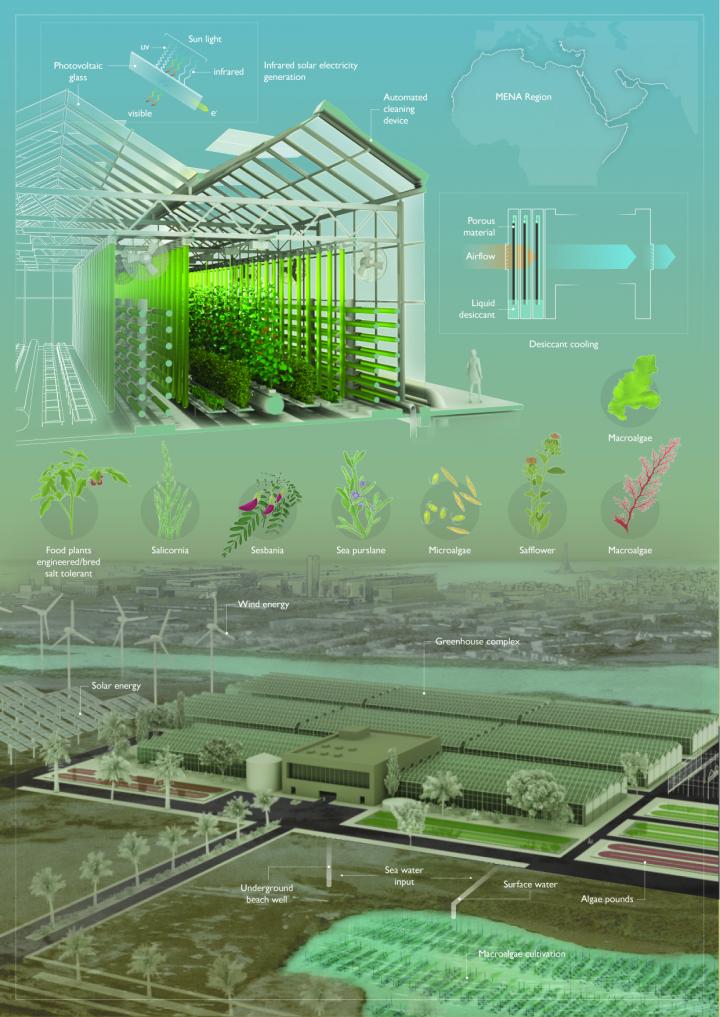
Credit: © 2020 KAUST; Ivan Gromicho
Emerging technologies can be harnessed to use the strengths of hot, humid coastal deserts of the Middle East and North Africa (MENA) region to grow food and other crops.
KAUST researchers are calling for a new generation of vast greenhouse complexes, supported by novel solar panels, air-cooling technologies, and advances in salt-tolerant agriculture. Their concept could kickstart a sustainable agriculture revolution in coastal desert regions across the world.
“Controlled environment agriculture (CEA) uses integrated systems to facilitate sustainable, local crop growth on a large scale,” says Kyle Lauersen, synthetic biologist. “Our vision combines several technologies currently in development at KAUST: energy-efficient, transparent solar panels; low-energy desiccant cooling; salt-tolerant edible plants; and algal biotechnology.”
Coastal locations in the MENA region have ample access to seawater and year-round intense sunlight. CEA makes it possible to use seawater to use grow salt-tolerant crops, such as newly identified varieties of tomatoes and green vegetables. Mixed irrigation means that CEA would have a lower impact on municipal supplies. To source extra freshwater, the researchers plan to harvest from humid air.
“We are excited by developments in cooling technologies that leverage liquid desiccants,” says research scientist Ryan Lefers. “Desiccants are highly concentrated substances that absorb water from the air–think of the silica packs found in electronic packaging. When humid air is pumped through a liquid desiccant system, it uses a highly saline liquid solution to absorb the moisture.”
The air released by the system is drier and cooler and can be circulated in the greenhouses, while the captured freshwater is recovered. The buildup of excessive heat inside greenhouses is a major concern in the MENA region. One solution comes from KAUST start-up iyris: which uses semitransparent solar panels as windows. Such panels allow visible light through for plant growth, while converting infrared energy (heat) into electricity.
The researchers also hope to combine plant and algae growth to generate not just food, but also biomass feedstocks for aquaculture, animal feed, chemical industry products and bioplastics. Algae can be grown in photobioreactors inside CEA, and this co-cultivation would increase the system’s value output.
“We see incredible potential for regionally inspired mixtures of salt-tolerant and freshwater species in different facilities, depending on market demands,” says Lauersen. “It’s becoming increasingly important to produce food and products in closer proximity to communities that need it. CEA will also provide food security, jobs and an economic base for year-round exports.”
“This is where multidisciplinary research comes into its own,” says plant scientist Mark Tester. “A pilot CEA greenhouse is under construction at KAUST as part of our spin-off company Red Sea Farms, and we will collaborate with colleagues across the university and beyond to demonstrate the exciting potential for CEA.”
###
Media Contact
Carolyn Unck
[email protected]
Original Source
https:/
Related Journal Article
http://dx.




